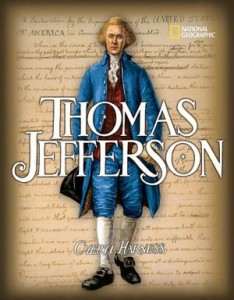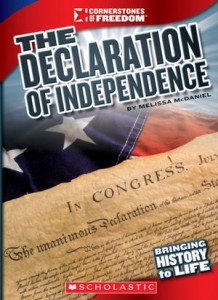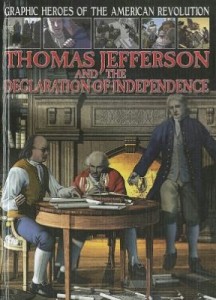“If men were angels,” wrote James Madison in The Federalist #51, “government would not be necessary.” While understanding  what Madison meant, he wasn’t quite accurate. Even angels are governed. Government was established before the fall, not after (see Genesis 1:28), and if human history proves anything, it proves that humans tend to order themselves whenever there are enough of them to order. What kind of order seems to be up to them; the Bible doesn’t give specific guidelines other than governments are ordained by God to reward good, punish evil, and promote order so that individuals can go about their business peacefully. No government does this perfectly, and many of them (or most, at some time or other) fail miserably. This might be because individuals, at some time or other, fail miserably. But after roughly 6000 years of experimentation a student of history might be able to discern that some forms are better than others, and a new form (borrowing extensively from old principles) came about in 1776 with the approval of a certain document. The question for today: Is the Declaration of Independence specifically Christian?
what Madison meant, he wasn’t quite accurate. Even angels are governed. Government was established before the fall, not after (see Genesis 1:28), and if human history proves anything, it proves that humans tend to order themselves whenever there are enough of them to order. What kind of order seems to be up to them; the Bible doesn’t give specific guidelines other than governments are ordained by God to reward good, punish evil, and promote order so that individuals can go about their business peacefully. No government does this perfectly, and many of them (or most, at some time or other) fail miserably. This might be because individuals, at some time or other, fail miserably. But after roughly 6000 years of experimentation a student of history might be able to discern that some forms are better than others, and a new form (borrowing extensively from old principles) came about in 1776 with the approval of a certain document. The question for today: Is the Declaration of Independence specifically Christian?
Judging by contemporary histories for children, the answer is No. Scholastic’s The Declaration of Independence credits the Enlightenment for providing the philosophical stuffing. Thomas Jefferson and the Declaration of Independence, a graphic history, hints at the same conclusion while naming no names. Of course, it’s politically incorrect to give a specific religion credit for anything except mayhem, but the answer could be right under our noses. I mean the document itself. It falls into three parts: A preamble, explaining why the states are declaring their independence; a list of 27 grievances against King George III, as though he were personally responsible for all of them; an announcement that the former colonies are now free states with all the rights and responsibilities thereof. God is referenced three times—as Creator, as the Supreme Judge of the world, and as Divine Providence. Is this the God of the Bible, or some generic deity?
Here’s an interesting family project: read the Declaration of Independence together, and underline or write down the principles set forth in the preamble. Such as
- The equality of all people (under law, at least)
- Their God-given rights—basically, life, liberty, and the pursuit of happiness
- Individual autonomy (implied by the above)
- The power of the government derived from the consent of the governed
- The right of the governed to “alter or abolish” governments that fail to “effect their safety and happiness”
Now, how many of these are Christian principles? Can you cite any scripture to justify them? or any scripture against them?
 Scholastic’s new history of the Declaration by Melissa McDaniel does a good job of providing background to the colonies and their developing rift with Great Britain, and when it comes to the document itself, the history seems fair and accurate. Some interpretations are debatable, though:
Scholastic’s new history of the Declaration by Melissa McDaniel does a good job of providing background to the colonies and their developing rift with Great Britain, and when it comes to the document itself, the history seems fair and accurate. Some interpretations are debatable, though:
“Prior to the declaration, Europeans believed that governments existed to maintain order and protect society. The Declaration of Independence, however, claims that the main function of government is to protect the rights of the person. For the first time, it was the individual, and not society, that was considered the most important.”
True or false? Discuss among yourselves.
Current histories for children tend to riff on “all men are created equal,” pointing out that women could not vote and—guess what?—many of the signers, including Jefferson himself, owned slaves. McDaniel writes, “Though the Declaration says that all men are created equal, Americans have often not been treated equally.” But she fails to mention that nowhere in the world could women vote at that time, nor had there been any sustained effort to abolish slavery. Those advances came with time, after the establishment of political equality, and our forefathers seldom get the benefit of being judged by their own lights.
One author who attempts to do this is Cheryl Harness (yes, I’m a fan), and I highly recommend her pictorial biography o f Thomas Jefferson. It doesn’t say much about the Declaration, but does an excellent job of putting the man in context. Younger readers might enjoy the Graphic Heroes of the American Revolution series’ volume on Jefferson and the Declaration, which gives some background before presenting the story of the document’s composition and signing.
f Thomas Jefferson. It doesn’t say much about the Declaration, but does an excellent job of putting the man in context. Younger readers might enjoy the Graphic Heroes of the American Revolution series’ volume on Jefferson and the Declaration, which gives some background before presenting the story of the document’s composition and signing.
A different, and fun, perspective for reading aloud is The Journey of The One and Only Declaration of Independence, which doesn’t spend a lot of space on content but uses the history of the original document to reflect a capsule history of the United States. It also introduces a little-known hero: Charles Thomson, secretary of the Continental Congress, who preserved the actual copy signed by John Hancock et al. throughout the ups and downs of the war and the upheavals of the early government. The illustrations are emblematic, in a style reminiscent of Tomie De Paola, with recurring themes. Younger children who have trouble following the text will enjoy finding the eagle in every spread.
The Declaration of Independence (Cornerstones of Freedom), by Melissa McDaniel. Scholastic, 2012, 62 pages. Age/interest level: 9-13.
Thomas Jefferson and the Declaration of Independence (Graphic Heroes of the American Revolution), by Gary Jeffrey, illustrated by Emanuelle Boccanfuso, Gareth Stevens Publishing, 2012, 24 pp. Age/interest level: 8-12.
Thomas Jefferson, by Cheryl Harness. National Geographic, 2004, 43 pp. Age/interest level: 10-up.
The Journey of the One and Only Declaration of Independence, by Judith St. George, illustrated by Will Hillenbrand. Philomel, 2012, 40 pp. Age/interest level: 6-10.
?For more insight on Jefferson and the Declaration, be sure to read Emily’s interview with Dr. Carol Swain of Vanderbilt University–great stuff!
Support our writers and help keep Redeemed Reader ad-free by joining the Redeemed Reader Fellowship.
Stay Up to Date!
Get the information you need to make wise choices about books for your children and teens.
Our weekly newsletter includes our latest reviews, related links from around the web, a featured book list, book trivia, and more. We never sell your information. You may unsubscribe at any time.
We'd love to hear from you!
Our comments are now limited to our members (both Silver and Golden Key). Members, you just need to log in with your normal log-in credentials!
Not a member yet? You can join the Silver Key ($2.99/month) for a free 2-week trial. Cancel at any time. Find out more about membership here.
2 Comments
Leave a Comment
You must be logged in to post a comment.


Loved this post! thank you! Great job evaluating all the resources!
Thank you, Melissa! I appreciate the compliment.